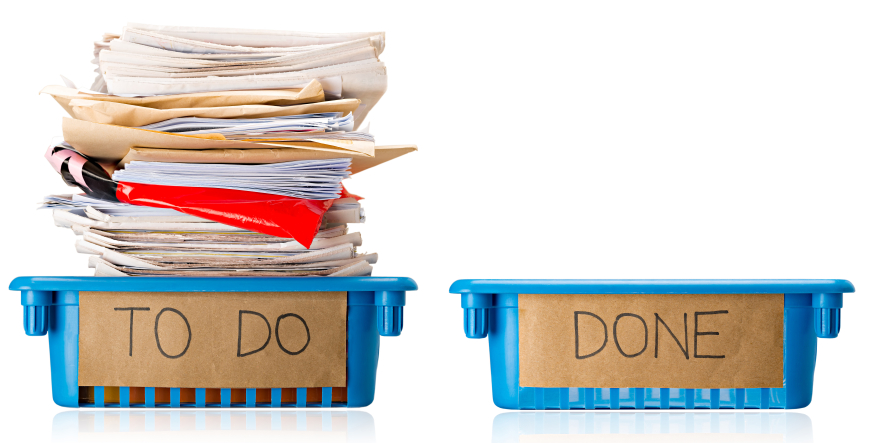PERSONAL NOTE
Well, I have to tell you that my Thanksgiving was wonderful this year. My amazing nephew gave me with a plane ticket to Portland to be with the family. If I was to describe it in one word that word would be "Perfect". We laughed and talked, we laughed and teased each other, and we laughed and hugged, did you pick up on the theme? Loads of fun and great for the soul. This month I will be celebrating my accomplishments of 2023 as I start planning for the new year. Since many people get overwhelmed during the holidays, I thought overwhelm would be a good topic for December, so, let's get after it.

ARTICLE
From Overwhelmed to Empowered
If you look up the word "overwhelm" in a thesaurus, you'll discover a rather bleak assortment of synonyms such as: overpower, subdue, oppress, quash, engulf, swallow, submerge, bury, suffocate. It's enough to make you want to stay in bed with the covers pulled over your head.
For those who have struggled with overwhelm, probably a significant portion of the population, these words may strike uncomfortably close to home. Whether overwhelm occurs suddenly or accumulates gradually, whether it's a persistent state or a sudden episode, the sensation can be likened to drowning, becoming immobilized, or a feeling of helplessness.
During these moments, everything can seem insurmountable. It goes beyond the usual hustle and bustle of daily life and busy schedules; even the thought of preparing a simple dinner can feel like an extraordinary feat. Paying bills and doing household chores may seem like something you can't handle. Tasks that once took 10 or 15 minutes can now appear utterly daunting. Time itself seems to have disappeared, leaving us paralyzed in a state of inaction.
What's even more disheartening is the loss of faith that this overwhelming state will ever end. We find ourselves ensnared in the quicksand of "too much," struggling to summon the willpower to escape when all we truly desire is to take a break. Jan Boddie, Ph.D., a therapist based in California who specializes in training individuals and consulting with businesses on this issue, observes that we live in an era of overwhelming proportions—far more overwhelming than decades past.
The pace of life is accelerating, and the promised time-saving benefits of technology seem to have yielded less leisure time, not more. Employers demand longer hours from their employees, and many adults find themselves sandwiched between the demands of older and younger generations.
“We have really lost connection, not just with nature, but with our own true human nature,” Boddie says. “We’re sidetracked. Our lives are in such fast forward that we don’t even recognize we might need help until we’re drowning.”
A significant part of the problem stems from our cultural belief system, one that places excessive emphasis on productivity and achievement while undervaluing the quality of our experiences and our connection to our core values.
Within this mindset, it's not uncommon for well-meaning friends or magazine articles to propose the "Nike solution": Just do it. Prioritize. Select three tasks and complete them swiftly. Deal with your mail as soon as it arrives. Perform a "brain dump" and create an extensive to-do list with everything imaginable on it. Then, dive into work!
While these suggestions are not inherently flawed, conquering overwhelm isn't primarily about measuring accomplishments. It's about reconnecting with what truly matters to us, with what nourishes and revitalizes us. "Adopting an entirely new approach to doing things can be overwhelming." "It fosters a future-oriented mindset that never ceases because there will always be more to do. Being in sync with what holds significance is fulfilling in the present moment. Feeling connected then provides the natural motivation to accomplish tasks."
As a result, when we align ourselves with our values and needs, we uncover the inner strength and the mental capacity necessary to progress in life.
However, the first step entails recognizing our individual symptoms and triggers for overwhelm. These symptoms can manifest in various ways: physically (e.g., nail-biting, clumsiness, neck pain), psychologically (forgetfulness, rudeness, defensiveness), socially (neglected hygiene, weak boundaries), or spiritually (a loss of purpose, uncertainty about our true priorities).
Triggers are equally unique, spanning from looming deadlines to a particular tone of voice or significant life changes. Identifying these symptoms and triggers serves as a crucial warning signal, indicating the need for intervention techniques. Once we have reconnected with ourselves, our values, and priorities it becomes essential to implement preventative measures to ward off future overwhelm. These can be ensuring adequate rest, maintaining a balanced diet, engaging in regular exercise, and, consistently, staying connected to our sense of purpose.
"The focal point that truly matters is in your heart," emphasizes Boddie. "Establish a connection with yourself, and from there, your authentic self can tackle the tasks ahead."
COOL RESOURCE
There is a great app, called Calm that can help you relax and regroup. While you can pay for the app they have a lot of free content available. Check it out if you need to slow down your life.
UPCOMING EVENTS
As I mentioned in an earlier issue, I will be the 2024 President of the San Diego County Escrow Association. For all of the escrow folks on my mailing list we will once again be meeting live after almost 4 years on Zoom. The first meeting will be January 9, 2024 (the second Tuesday of the month). Please mark that date on your calendar and watch for emails from the association for the details and registration. Let's all get together for dinner, visiting with old friends, and education.
I LOVE GETTING YOUR COMMENTS
Hit reply to let me know your thoughts or challenges.
Linked In
Stay safe, healthy, and happy!
Coach Jan
|